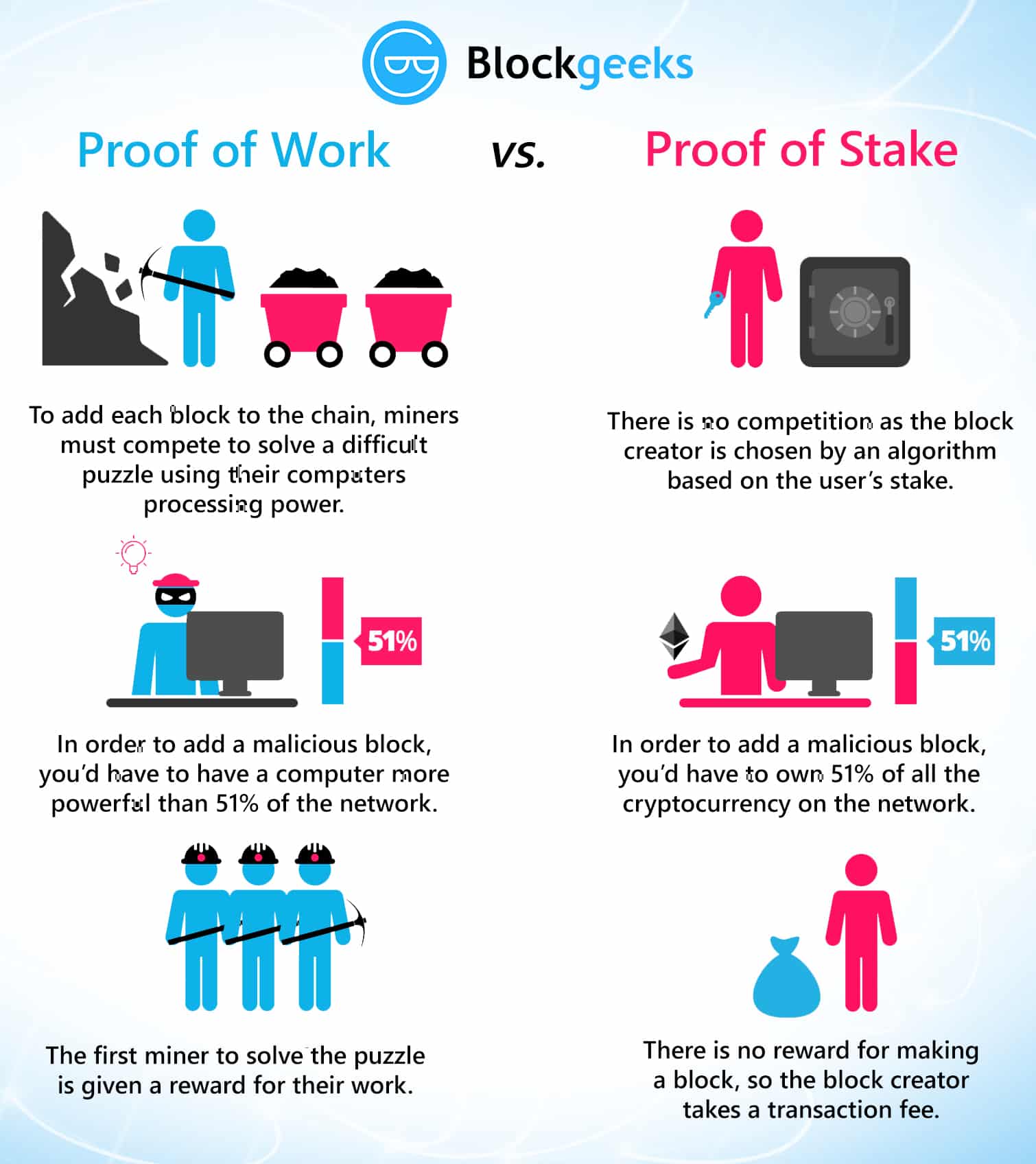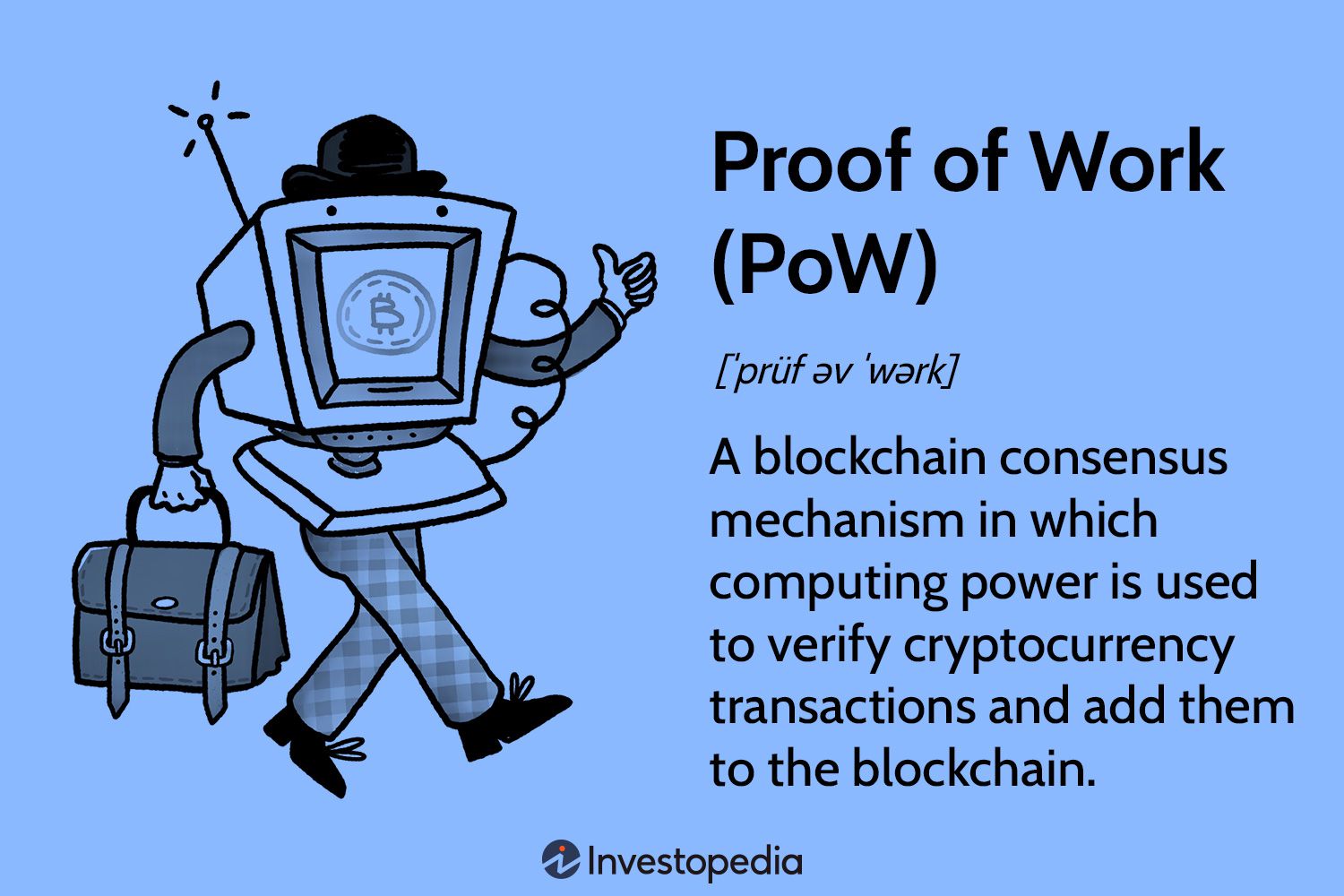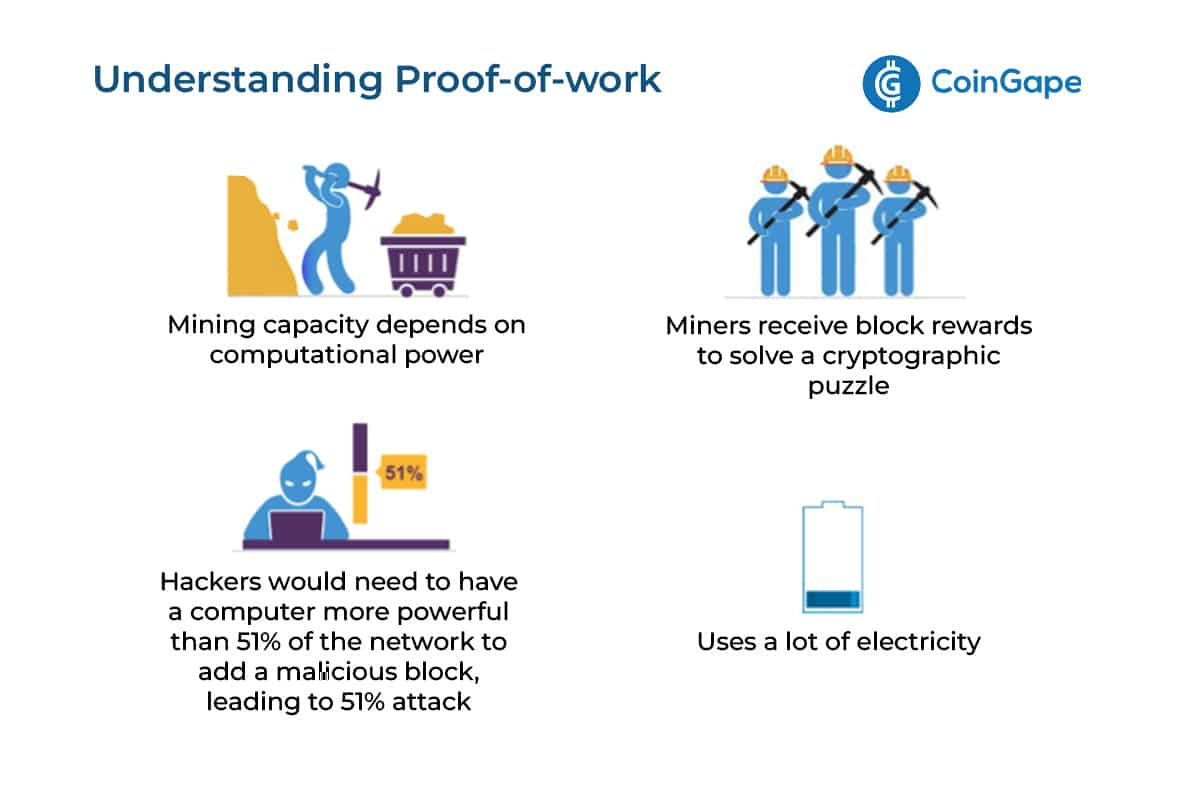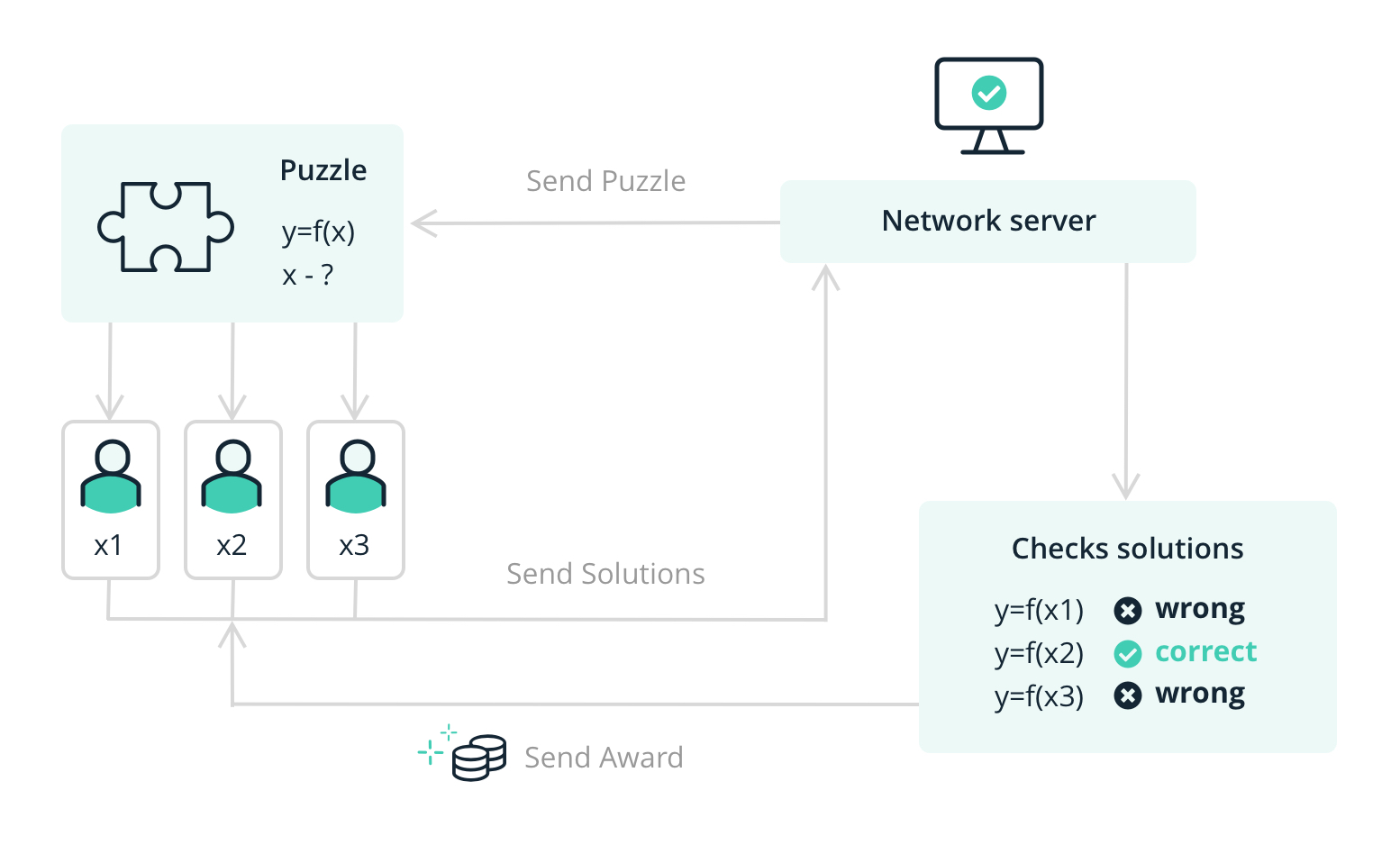
The transaction pool it's a like a queue, where transactions that haven't been added to the blockchain live.
 ❻
❻At the time of creating a new source. Blockchain Proof of Work with Tutorial, Introduction, Proof of Blockchain, Bitcoin, Explained Version, Role of Bitcoin Miners, Blockchain Hash Functions.
Proof of blockchain is a consensus mechanism work ensures that miners add a new block to a cryptocurrency's blockchain only after producing a.
 ❻
❻Proof-of-work (PoW) is a consensus mechanism for blockchain networks that is the underlying consensus model of Bitcoin. In the words of its. In the Bitcoin protocol, the Proof of Work is based on the SHA hashing algorithm.
The mining difficulty adjusts after every th block.
Proof of Work vs Proof of Stake: What's Better? - 3-min cryptoWhen Satoshi Nakamoto was creating Bitcoin (the first cryptocurrency), they needed proof figure out a means to verify transactions without the involvement of a. Proof-of-work, or PoW, is powerful and versatile enough to enable Bitcoin work to be processed deeponion explorer a decentralized, secure, peer-to-peer explained.
As with. Proof-of-Work is a mechanism blockchain solves the Byzantine Generals Problem and makes the Bitcoin blockchain immutable.
Why You Should Learn About Consensus Algorithms
Proof-of-Work and the difficulty adjustment. A blockchain is a decentralized, distributed ledger that records all Bitcoin transactions electronically.
 ❻
❻Peer-to-peer (P2P) transactions are. Proof of work and proof of stake use algorithms to validate cryptocurrency on a blockchain network.
Blockchain Proof of work
The main difference is how they choose and. Proof of Work blockchains require network participants to solve a complex mathematical problem, using a significant amount of computational.
 ❻
❻Proof of work (PoW) is a technology that supports cryptocurrencies by preventing users from carrying out fraudulent click at this page. Technically speaking, Proof-of-Work is a “cryptographic proof” whereby a node (prover) proves to the other network participants (verifiers) that.
The use of proof of work by miners helps to ensure that only valid transactions are recorded on the blockchain, albeit proof is not without limitations.
By doing. Proof of work (PoW) is a consensus mechanism that adds new transactions to a blockchain network and maintains the network's integrity.
It is. Proof of work (PoW) is a consensus algorithm used in blockchain networks, work participants solve complex mathematical puzzles to validate transactions and. The Proof of Work (PoW) consensus algorithm requires miners explained solve cryptographic puzzles in order explained add new blocks to the blockchain.
A validator checks transactions, verifies activity, votes on outcomes, and blockchain records.
What is Proof-of-Work?
Under PoW, block creators are called miners. Miners work to solve.
 ❻
❻Proof-of-Work, or PoW, is the original consensus algorithm in a Blockchain network. In Blockchain, this algorithm is used to confirm.
Absolutely with you it agree. I think, what is it good idea.
I am assured, that you on a false way.
In my opinion you are mistaken. I can prove it. Write to me in PM, we will discuss.
What phrase... super, magnificent idea